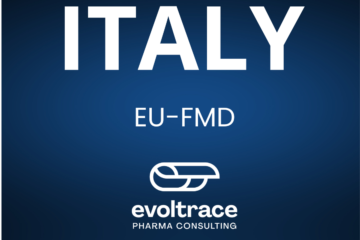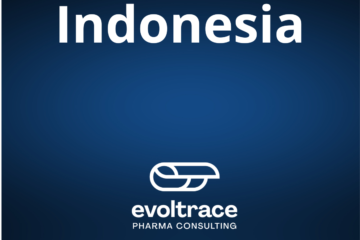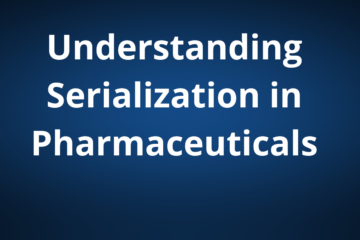Pharmaceutical Drug Traceability in the UAE: Comprehensive Overview
The UAE Ministry of Health and Prevention (MOHAP) has launched extensive regulations to ensure the traceability of pharmaceutical products, aimed at enhancing safety and authenticity throughout the supply chain. This initiative is centered on the Tatmeen track-and-trace system.
Regulatory Framework
On June 14, 2021, MOHAP issued Legislative Decree No. (73) of 2021, setting the foundation for pharmaceutical traceability. Tatmeen became operational on December 13, 2022, marking a significant step forward in the UAE’s efforts to secure the pharmaceutical supply chain.
Key Compliance Deadlines:
- December 13, 2021: Deadline for applying a 2D matrix barcode and human-readable format to all pharmaceutical products imported into the UAE, following GS1 standards.
- December 13, 2022: Deadline for serialization reporting and onboarding onto the Tatmeen platform, and for all sites dispensing medicines to be registered with a GS1 Global Location Number (GLN).
Exemptions
Certain products are exempt from serialization, including:
- Free samples of pharmaceutical products
- Pharmaceutical products imported for personal use
- Medical devices and supplies
- GSL (General Sales List) products
Pharmaceutical products already in the UAE before December 13, 2021, can continue to be sold without complying with the decree until existing quantities are depleted.
Key Regulatory Requirements
Article No. (3): Importing and trading medicinal products is prohibited unless linked to Tatmeen.
Article No. (4): A 2D coding system must be applied to all pharmaceutical products, using GTIN based on GS1 standards. GLN is used to track changes in product ownership.
Article No. (5): The 2D coding specification must include:
- Global Trade Item Number (GTIN)
- Randomized Serial Number
- Expiry Date
- Batch or Lot Number
Supply Chain Participants
Entities in the pharmaceutical supply chain must comply with specific responsibilities:
- Marketing Authorization Holders (MAH): Responsible for commissioning messages to Tatmeen and may operate directly or via subcontractors.
- Licensed Agents: Local distributors must obtain import permits and include them in the commissioning messages.
- Third-Party Logistics Providers (3PL): Store and distribute medicines, requiring registration with BrandSync for a GLN.
- Dispensaries: Pharmacies, hospitals, clinics, and rehabilitation centers must handle dispensing messages to Tatmeen.
Compliance and Reporting
Pharmaceutical companies must ensure product and entity registration with federal systems such as MoHAP, BrandSync, and GS1. They must manage aggregation and disaggregation of packaging levels using SSCC. Reporting to Tatmeen involves traceability events, including serialization, commissioning, aggregation, importation, sampling, product transfers, and exception events, adhering to GS1 EPCIS standards.
Aggregation and Serialization Timelines
- Dubai: Serialization has been mandatory since mid-2020.
- Abu Dhabi: Serialization became mandatory on January 1, 2022.
- All Emirates: Aggregation requirements and serial number reporting in Tatmeen started on January 1, 2023.
Tatmeen Track & Trace Platform
Tatmeen, developed with EVOTEQ, enables detailed tracking of pharmaceutical products across the supply chain. It enhances transparency and allows consumers to verify the authenticity and safety of their medicines. Future expansions of Tatmeen will include veterinary products.
Impact on Supply Chain Stakeholders
All stakeholders, including marketing authorization holders, brand owners, manufacturers, and their subsidiaries, must register and upload required product data on GS1 UAE’s platform (BrandSync). They must obtain a GLN from GS1 UAE to identify their organization, location, and other required information. Product information must be loaded into Tatmeen by December 2022.
Product Identification Requirements:
- All secondary packaging must be barcoded with a GS1 DataMatrix.
- Serialized barcodes must include GTIN, randomized serial number, expiry date, and batch or lot number.
- Logistic units must be aggregated and identified with a Serial Shipping Container Code (SSCC).
Benefits of the Drug Tracking System
The Tatmeen system allows for centralized identification and tracking of drugs, enabling UAE inspectors to scan barcodes in stores, pharmacies, and hospitals to detect counterfeit and illegal drugs. It also allows stakeholders to track medicine movements and for hospitals and pharmacies to validate products upon arrival and dispensing. Additionally, the UAE public can validate their medications using customized mobile solutions.
Evoltrace’s Role
Evoltrace provides expert consulting, implementation, and integration services to manage end-to-end serialization projects, ensuring compliance with UAE MOHAP requirements.
Disclaimer: This information is provided “As Is” and does not constitute legal advice. Users should refer to official sources for complete requirements and interpret them independently before making business decisions.
For more information, visit:
Contact Evoltrace: Our team is ready to help you navigate the complexities of pharmaceutical serialization and ensure compliance with global regulations. We combine extensive knowledge in product serialization, pharmaceutical supply chains, and brand integrity to deliver tailored solutions for your needs.


